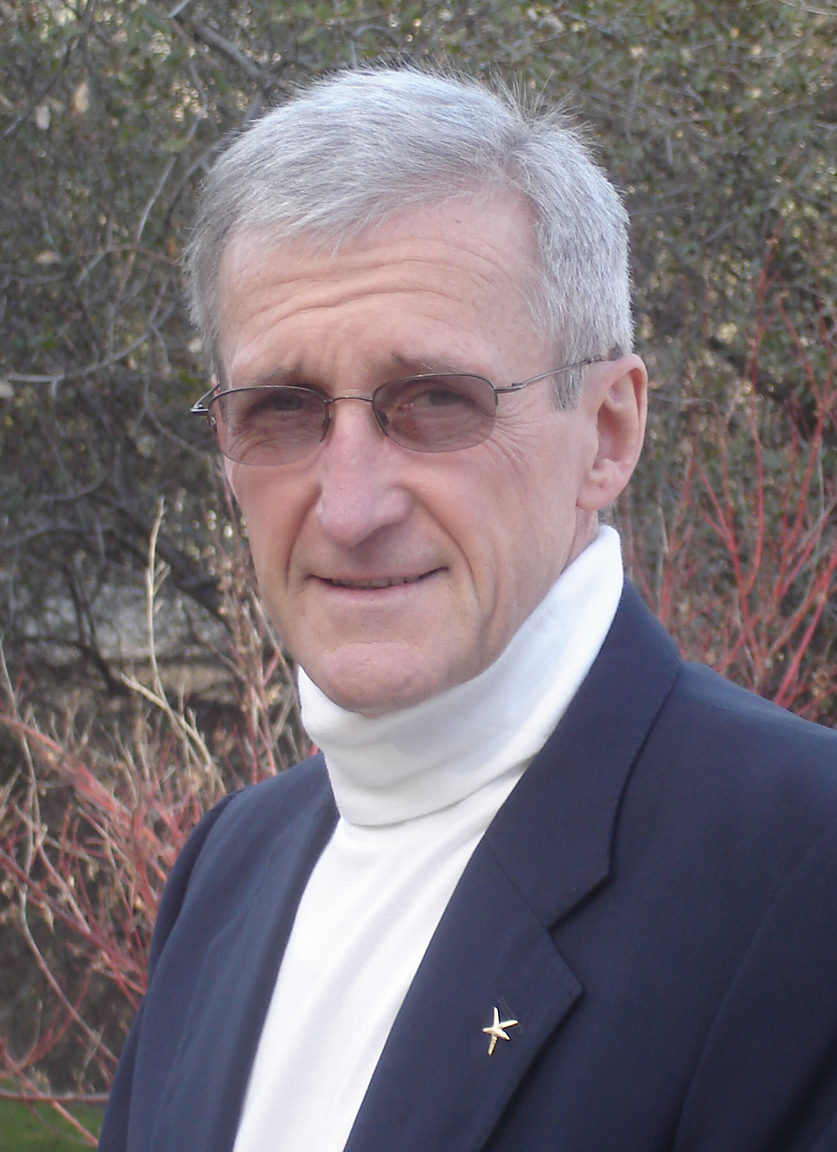
Ellen Grondine is the Dean of Law, Education and Social Professions at Northern Essex Community College in Lawrence and Haverhill, Massachusetts. She has also held administrative positions in the K-12 public education arena specifically related to curriculum and instruction and has extensive teaching experience in both early childhood and special education. Ellen is an Appreciative Inquiry Facilitator, a Process Management Trainer and a member of the National Coalition Building Institute (NCBI) team of trainers. Her expertise in strengths based team building, her understanding of tools for critical analysis, and her work in building effective inter-group coalitions have been instrumental in academic and strategic planning, divisional training and goal setting, and her community outreach efforts on behalf of the college. She has facilitated collaborations among the college and veteran’s service agencies, community partnership councils and public school settings by providing workshops, program development and resources. Her work within the K-12 setting also includes the design and implementation of Appreciative Inquiry teacher training as a means of strengthening parent-teacher relationships and facilitating communication among public school administration and community members. Ellen earned a Master of Education in Curriculum and Instruction from Lesley University in Cambridge, and a Bachelor of Science from Wheelock College in Boston, Massachusetts. |
Specialties:
|
Tag Archives: academic master planning
Linda Watkins

Linda Watkins has been associated with community colleges for 20 years. She currently serves as President of San Jacinto College South in Houston, Texas. Before becoming President, Linda taught on all levels from middle school through graduate school. She has served in various administrative roles, including department chair, dean, Vice President of Instruction, and Vice President of Student Services. Linda has been certified by Company of Experts.net as an Appreciate Inquiry Facilitator. She works with many local organizations in the areas of planning and organizational change. Linda holds a doctoral degree in Secondary and Higher Education, a masters degree in sociology, and a bachelor of arts in language studies. She works with groups to bring about change through systematic planning and by building upon the strengths of individuals and institutions. |
Specialties:
|
Chuck McIntyre
 Chuck McIntyre of northern California, has consulted and worked in higher education planning, research, evaluation, finance and management since 1971. Until 1999, he worked as Director of Research and Analysis in a state office of higher education and has consulted with colleges across the U.S., in the United Kingdom and Canada since the early 1999s. His recent engagements have been in the areas of strategic and facilities planning, emphasizing enrollment forecasting, planning, and management – using computer simulation models, recently-released 2000 Census data, and other sources and tools. Chuck McIntyre of northern California, has consulted and worked in higher education planning, research, evaluation, finance and management since 1971. Until 1999, he worked as Director of Research and Analysis in a state office of higher education and has consulted with colleges across the U.S., in the United Kingdom and Canada since the early 1999s. His recent engagements have been in the areas of strategic and facilities planning, emphasizing enrollment forecasting, planning, and management – using computer simulation models, recently-released 2000 Census data, and other sources and tools.
ENROLLMENT FORECASTING, SIMULATION, AND MANAGEMENT Since the early 1990s, Chuck’s work has emphasized enrollment planning and management. In 1993, he developed an econometric model that is currently used in long-range enrollment forecasting for the capital planning at local districts in a state system. He conducted a study for the Maricopa Community Colleges in 1995 on the enrollment-impact of tuition and fees; results have been used by the district for long-range policymaking. Chuck then worked, in 1996, with Lincoln University on a computer model to simulate a variety of enrollment management initiatives in marketing, admissions, registration, and student retention, all designed to tie into budgeting models. Chuck also completed a 1997 study of Pima Community College’s past and future enrollment patterns for its use in planning. In Spring 1997, he was published in Jossey-Bass’ New Directions for Institutional Research, and has spoken on enrollment management at national conferences like the American Association for Community Colleges (SCUP), Association for Institutional Research (AIR), Society for Needs assessmentCollege and University Planning (SCUP), and the Consortium for Community College Development (CCCD). In Fall 1998, Chuck spoke at the European AIR in Spain about use of computer models to forecast enrollments and plan budgets. Also in 1998, he conducted an enrollment simulation and planning (ESP) study at Lansing Community College and, in 1999, he conducted ESP studies at Portland, Mt. Hood and Lane Community Colleges in Oregon and for the State Office of Michigan Community Colleges. In Fall 1999, AACC published Chuck’s book on Enrollment Simulation and Planning. Since then, Chuck has worked on ESP projects at colleges in Oregon, Michigan, Massachusetts, California, Washington, and Texas. STRATEGIC PLANNING Recent engagements by Chuck with Palm Desert and San Mateo (California) and Austin (Texas) Community Colleges have involved a form of strategic planning – learning-centered strategic planning – that emphasizes efforts by these institutions to concentrate in a variety of ways on student learning. Chuck spoke about this technique at a SCUP regional conference in 2002. Chuck’s work in college planning and evaluation spans nearly three decades, beginning in 1974 with an Exxon Education Foundation grant for research on the book Planning Colleges for the Community, published by Jossey-Bass. In 1978, he directed work, supported by a Vocational Education Act grant, on assessments of community educational needs; and in 1981, he was awarded a four-year Fund for Improvement of Postsecondary Education grant to develop new ways to tie college planning and evaluation to accreditation. Since then, Chuck helped develop several long-range plans for a state Board of Governors, has written a number of articles and monographs on college planning, and has directed numerous workshops and symposia on the topic using techniques such as Charrette, Delphi, Nominal Group Technique, and Total Quality Improvement. He has spoken frequently on planning at national and regional conferences like AACC, SCUP, AIR, Pacific Northwest Association for Institutional Research and Planning, Western and Southwestern Regional SCUP, Southeastern Association for Community College Research, California Community College Board of Governors, California AIR, Community College League of California, California Community College Trustees, and California Research and Planning Group, and at many local colleges. As Director of Research and Analysis, he was responsible for numerous state-level planning and evaluation projects, including environmental scanning and futures research projects, one of which was honored in 1996 with a Research White Paper grant from AACC and the Sloan Foundation, and published in Core Issues in Community Colleges (AACC, 1997). FACILITIES PLANNING During 2000, 2001 and 2002, Chuck conducted projects in long-range facilities planning for Mt. San Antonio (CA), Mt. Hood (OR), and Austin (TX) in preparation for capital financing bond elections. These projects involved computer modeling of facility needs, formulation of new space and utilization standards, and new kinds of classroom configurations. He currently is involved in a similar project for College of the Desert (CA) and has an article on the topic forthcoming in the Spring 2003 issue of the Journal of Applied Research in the Community College. Earlier, in 1990-91, Chuck designed and implemented a computer model to project 15-year facility needs for a state system of community colleges; the resulting Board of Governors’ Long-Range Capital Outlay Plan was used to plan and allocate capital outlays for nearly ten years. POLICY RESEARCH Over two decades, Chuck conducted and directed numerous policy research projects for a state office about community college transfer, tuition, fees and financial aid, student services and other topics. His article on transfer performance was published in Research in Higher Education in 1989. Other work includes policy research on such topics as the impact of fees on enrollment (1993), growth funding formulas (1996), and welfare reform (1997), among others. Also in 1997, Chuck completed four technical papers for the 2005 Task Force, a long-range planning effort about future college needs and funding, sponsored by a state Board of Governors and Chancellor. Chuck served on the Research Commission of the AACC between 1997 and 2000. COMPUTER MODELING For the past decade, Chuck also has engaged in many computer modeling projects, designing, developing and implementing planning and decision-support tools for colleges and universities. In 1989, he developed a computer model to forecast college faculty replacement, which was used in human resource planning and presented that year at SCUP. Between 1990 and 1995, Chuck directed a consortium of three dozen community colleges in the U.S., United Kingdom, and Canada in developing computer-aided planning (CAP) models. This work-involving model design, development, quarterly workshops with participants, and testing–was to produce robust and systematic computer simulation models to help colleges plan and make policy decisions. During the CAP project, Chuck held a 1993 planning symposium for staff from community colleges throughout England, Scotland, Wales and Ireland. Among colleges participating in the CAP project were Bilston in Birmingham (England), Lethbridge in Alberta (Canada), Kapiolani (Honolulu), and three-dozen other colleges from the mainland U.S. OTHER EXPERIENCE AND ACADEMIC TRAINING Earlier in his career, as Director of Analytical Studies with a state office of higher education, Chuck directed the design of the office’s first computer-based management information system and was responsible for the design and implementation of two financing systems by which the state office allocated funds to local districts. Chuck also has worked on projects assessing the economic impact of colleges, and in 2001 he helped AACC evaluate a new cost-benefit model for this purpose. Chuck’s academic training is in economics: PhD from University of California, MA from California State University; and in anthropology: BA from University of Colorado. He has taught undergraduate microeconomics and graduate higher education finance at the California State University. Prior to working in higher education, Chuck played professional baseball for the Milwaukee Braves organization. |
Specialties:
|
Frank Gornick

Frank Gornick is chancellor of a community college district in California serving one of the poorest regions of the nation. Enrollment has increased three fold since 1994 while the total district revenues have been matched with an aggressive federal and state grant program. The district consists of two colleges, as well as centers throughout the 3,000 square mile service area. In 2002, the district was recognized by the Met Life Foundation “For excellence in promoting education and economic advancement for underserved youth and adults.” In 2004, the college district was awarded the prestigious California Community College Chancellor’s Diversity Award for Excellence for its work in promoting and hiring a diverse administrative staff. Campus Compact recently featured this college in its spring publication: One with the Community: Indicators of Engagement at Minority-Serving Institutions. Dr. Gornick has led an aggressive campaign for child care in his district with a goal of placing a college-operated child care facility in every community the district serves. The district’s intent is to address the whole family’s educational needs and promote access to education through the use of these centers. He has fostered the aggressive use of technology by forging strategic partnerships with Cisco Systems, Pacific Bell, Federal agencies, local Workforce Investment Boards and others to deliver low cost solutions of access to technology. This effort has led to one of the most advanced on-line educational programs in the state–if not the nation. Retention rates exceed 75 percent. His staff has exploded the myth that poor citizens without access to computers will shun on-line educational opportunities. His low-key yet high energy approach to leadership encourages people by example and with enthusiasm. He has transformed the college into a district that knows what it is doing and cares about the people it is enabling. Dr. Gornick joined forces with community college presidents, AACC and business leaders to begin the discussion of the future of education in our country. Dr. Gornick wrote an article for the Community College Journal, December/January 2006 edition titled: A Call to Action: Reclaiming our Competitive Advantage. Dr. Gornick and the other leaders are beginning the dialogue on a national level this year. |
Specialties:
|
Earl Bloor

Earl Bloor has a diverse background spanning higher education, government and industry, including twenty-five years as a chemistry instructor and administrator of a wide range of college-level programs, including arts, sciences, health occupations, technology, and trades programs. He has managed major instructional divisions in colleges in Canada, Massachusetts and California, and in Abu Dhabi (UAE). In government, he has worked with departments focusing on human resources development and apprenticeship training. For a two year period, he coordinated corporate development and training programs for a Middle Eastern oil operating company. With his wife, he publishes a regional magazine which focuses on sustainability issues. Earl has managed major curriculum development projects, such as the Competency Based Apprenticeship Training Program in Alberta (Canada) and the Adult Applied Academics Project in British Columbia (Canada). Earl was one of the first Facilitators/Trainers of the Instructional Skills Workshop Program, now a major element in instructional improvement programs in colleges and universities around the world, and one of its original Directors. Earl has been certified by Company of Experts.net as both an Appreciative Inquiry Facilitator and an Appreciative Inquiry Facilitator Training (AIFT©) Trainer. He is also a certified Team Coach. Earl’s experience has led him to understand that empathy is at the root of every successful human relationship. “My approach to supervision is relationship-based. I believe that every employee seeks to do the best job s/he can do. If there are factors preventing peak performance, these need to be identified in a non-threatening manner and addressed. This belief is at the base of the work I do to help organizations plan to achieve the goals that are most important to them.” Earl earned a Ph.D. in Chemistry from the University of Western Ontario (London, Canada) and conducted research at the University of Illinois and Simon Fraser University (Canada) before settling into a long and rewarding career based in community colleges around the world. |
Specialties:
|


